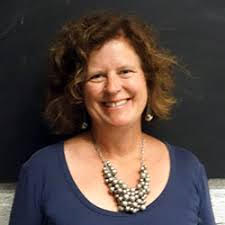
Anne Herr: To support at-risk students, DC must invest
As Mayor Muriel Bowser and the DC Council consider legislative priorities for the coming year, the city’s educational system ought to be a major focus. While we have made encouraging progress in recent years, there is still critical work to be done.

Mayor Bowser’s administration has made historic investments in our education system designed to better serve students across the city. A recent report from the D.C. Policy Center suggests that those investments have paid off: Enrollment is growing in both traditional and charter public schools, a sign that public trust in our education system is increasing. Meanwhile, students are scoring higher on standardized tests, with the city’s fourth- and eighth-grade students making significant gains on the National Assessment of Educational Progress exams in 2019, even as results across the country mostly fell or remained flat.
Yet while our education system has improved overall, not every child in this city has access to the same opportunities. Although test scores have risen across the board, significant gaps remain between white students and students of color. Those who struggle the most are consistently being let down, left out and left behind. If we are going to serve all of our students and address education-opportunity gaps, we need to invest in supporting those children who face the greatest challenges — and that means providing additional financial resources and policy tools to DC Public Schools (DCPS) and the DC public charter schools serving a high number of students in poverty and those defined under the law as “at-risk.” An at-risk student is a child whose family qualifies for public assistance, who is homeless, who is placed in foster care, or who is a high school student over age for their grade.
We have four priorities for the upcoming budget, some of which echo suggestions raised today by former Mayor Anthony Williams in a Washington Post op-ed:
- Increase investments in the students and schools most in need of additional funds by increasing the at-risk funding weight from 0.225 to 0.370 — a level recommended in the 2013 Uniform Per-Student Funding Formula (UPSFF) Adequacy Study.
- Invest in services that are designed to address student and family mental-health needs by fully funding the expansion of the Department of Behavioral Health’s school-based mental-health program.
- Increase the base funding level for all public school students to the level recommended in the 2013 adequacy study, so that all schools can better meet the needs of students with exemplary programming. The adequacy study called for a base UPSFF of $11,840 (when adjusted for inflation) versus the current level of $10,980 — accounting for a gap of $80 million. We recommend that city leaders close this gap over two years, starting with a 4% increase in fiscal year 2021.
- Incorporate language in the Budget Support Act to continue the automatic escalation of facilities funding for public charter schools, so that schools have greater predictability when making facilities plans.
Given favorable revenue estimates released by the District’s chief financial officer, it’s clear that we can afford this additional spending, making this an optimal time to act.
In addition to these investments, we should consider reforms that would allow DC’s public charter schools to prioritize at-risk students in the random admissions process. There are many barriers that limit access to high-performing schools for the students that most need them, including geography and transportation, to name just a few. Many charter schools are eager to serve more at-risk students but are prohibited from prioritizing these students in the admissions process. DCPS just announced a plan to offer a preference for at-risk students. Amendments to the DC law could allow public charter schools to provide a preference for students defined as “at-risk” similar to the preference that was introduced several years ago for students with disabilities. We also believe a review of the definition of “at-risk” under current law is necessary to ensure it appropriately captures all of the students in need of additional funding support.
Every child deserves the chance to learn and grow in a supportive environment with the resources they need to succeed. Our city has an obligation to educate all of our children, and to offer first-rate services that will help our students become empowered and impactful members of our community. With these important reforms, we have an opportunity to make that future real.
Anne Herr serves as the interim co-executive director at FOCUS, the principal advocate for the District’s public charter schools.
About commentaries
The DC Line welcomes commentaries representing various viewpoints on local issues of concern, but the opinions expressed do not represent those of The DC Line. Submissions of up to 850 words may be sent to editor Chris Kain at chriskain@thedcline.org.


Comments are closed.